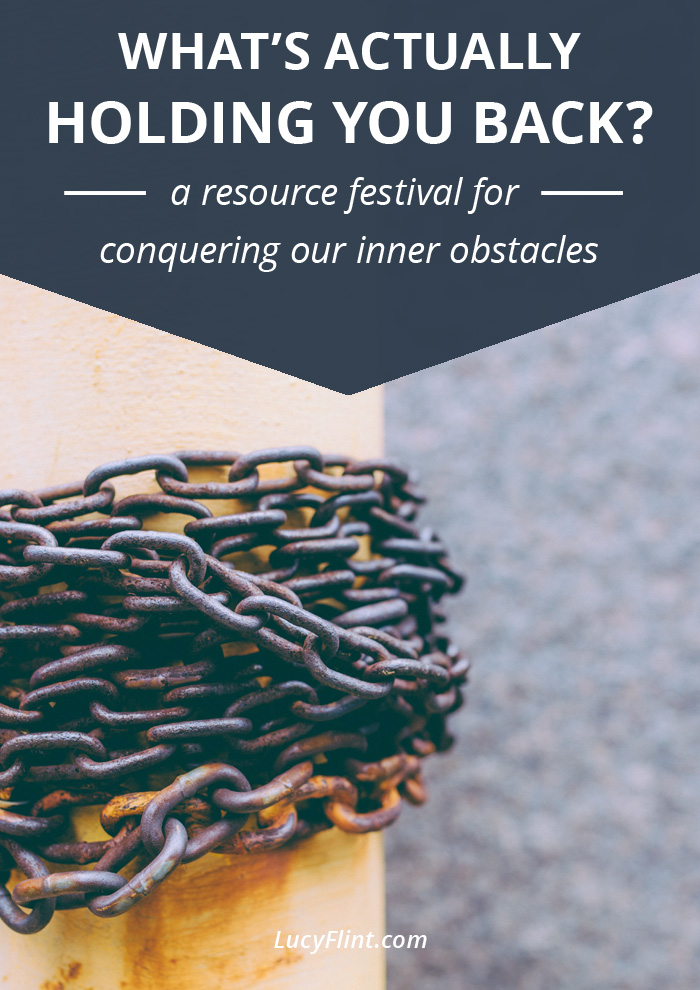Re-energize Your Whole Writing Practice with These Three Little Words
/If you've hung out on this blog for a while now, you've probably noticed that I'm a bit of a self-improvement junkie. If there's an interesting way to grow, I'm in.
I wanna give just about anything a try, when it comes to kicking out the meh and bringing in the yay.
In all that self-improvement learning, I keep coming across the idea that not all time spent practicing a skill is equal. Just showing up and messing around isn't the same as practicing, and merely practicing isn't the same as deliberate practice.
Have you heard of deliberate practice? Essentially it means practicing with a ton of laser-like focus.
It often includes pulling apart weaknesses; working on each tiny, building-block stage of the craft until it's polished; and then putting it all together again to get even better.
Deliberate practice is the best possible way to improve at a craft, at a skill.
It's the way committed beginners work, and it's the way that experts continue to grow.
The first time I heard a discussion about deliberate practice, I got excited. REAL excited. It sounds awesome, right? I mean, you and I, we lionhearts, we wanna get really good at the craft of writing.
Which is why I want to dive into a big pile of deliberate practice this month. ... But there's one thing that scares me off.
Each discussion of deliberate practice that I've come across tends to stress that this way of working is fiercely challenging. Grueling.
You don't always see the rewards right away. It can take a lot of work on those tiny micro-skills in order to see the larger progress. In talking about this process, some people use words like tedious. They say it's painful. It sounds grim.
And wow. I just want to sit back and applaud the heck out of anyone who wants to work like that.
And then I want to run away. (Am I allowed to say that??)
To be clear: I'm not scared of hard work. I'm not scared of seeing that my craft isn't excellent yet. I'm not even scared of results taking a long time in the making.
What I am really, truly scared of is this: I don't want to create a writing life and a writing practice that feels grim.
I don't want a writing life that feels dark and toilsome and unrewarding, because you know what? I won't be able to stick that again. I used to think that's what it meant to write seriously, and it nearly killed my writing life. (Didn't do anything wonderful for me as a human being, either. I wasn't the easiest person to be around.)
I am not willing to be consistently miserable in order to get better at my craft. I'm just not.
Hard work is okay. The fact that there is no such thing as instant gratification: also okay.
Horrible days and weeks and months of chipping away at an unattainable skill and therefore always feeling like I'm just not any good: REALLY NOT OKAY.
So what do I do with this? Did I just disqualify myself from aiming for writing excellence? Do I have to be grim and miserable in order for deliberate practice to work? No more smiling?
I wondered about that for the last couple of months: How do I relentlessly improve my writing, without feeling like a failure every step of the way? Is it even possible?
Spoiler alert: YES. Yes, it's possible.
It dawned on me in a beautiful way: You can keep getting better with every single practice, you can make that practice time count, and you can do it all without hating yourself or the process.
Which means I don't have to resign from being a lionheart, and neither do you. We can practice deliberately: pursuing excellence with focus, and doing it happily.
Know how I know? Because I've just been living it: with my yoga practice. And I'm convinced that it will translate beautifully into writing as well.
Here's what you need to know about me: bodily strength is not my natural gifting. I do not tend to be flexible or graceful.
But there's something that goes off in my heart when I see people doing yoga. It looks like such an incredible mix of strength, flexibility, and serenity—and whoa, I just want more of those things in my life.
So I started doing yoga about two years ago. It was pretty hit and miss. I'd do it a couple of times one week, and then I'd miss a few weeks or months, and then come back to it.
No big deal: it was just something I was curious about. I found an amazing online teacher (!!), I got a yoga mat, and I kept it up with the hit-or-miss approach.
Each time I practiced, I knew I wanted to get better, but I was also dealing with a ton of crazy things happening with my family, my health, and oh yeah, I was trying to learn how to pull a few novels out of my hat. Yoga excellence pretty much stayed on the back burner.
But a couple of months ago, I got much more serious. I realized that I wanted to really grow at it. To get good and legit.
I knew the first steps: I found a great, free, 31-day yoga program from my fave teacher. I cleared the time in my daily schedule, and I committed to showing up.
And then, and then. I went one step further, almost by accident, and I discovered the huge difference-maker. Such a simple little thing, but it made the biggest change. So listen up:
I intentionally latched onto that hip little phrase that I've seen flapping around the internet—on Pinterest, on Instagram, in all sorts of sports/fitness/training discussions. You've probably run across it too:
Meet your edge.
It suddenly held meaning for me, that phrase. So I wrote it next to my daily reminder to do yoga: Meet your edge.
And unexpectedly, I had a total breakthrough. Because that little phrase changed how I approached every move of every practice session.
"Meet your edge" leads me straight into a mindset of deliberate practice, but without getting all grim about it. And here's why.
For starters, "meet" means meet.
It means approach, see, encounter, connect. It does not mean "destroy!" or "shatter!" or "obliterate!"
In other words, we're not talking about a ton of oomph here. No mighty exhausting battle cries. This isn't about doing anything reckless, or mega-mega-hard.
It's pretty simple. Meet it. That's not so terrifying, right?
So when I begin my yoga practice with meet your edge in mind, I'm automatically on the lookout. I am literally scouting for my edge—for the rim of my ability. The end of the territory of What Comes Easily.
I am looking for the places where I would naturally give up.
... Like five seconds into plank pose, or a few push-ups past my comfort zone (which was basically, uh, one push-up). The limits of a stretch, or the arm-trembling aches of downward-facing dog.
These were the times when, in my hit-or-miss yoga days, I would reason: You know what, I'm not feeling it. I'll take a child's pose, a time-out, and call it good.
(And, hear this: that was a totally okay call to make at the time, because right then, upping my yoga commitment wasn't something I was aiming for. So, no self-judgment, and no worries.)
But when I encounter those same places now, I actually truly get excited. Because I snap back to that phrase. To that prompt.
And I think, This is it! This is the edge! What I was looking for!
I can almost see it, this boundary line. That divide between where I am, and where I'm heading, and you know what? That's flipping exciting!
It shifts my focus. It used to be, I'd focus in on that surge of ugh, here's what I can't do, here's where it gets hard.
But "meet your edge" reframes that whole question. It isn't asking me to become a yogi superstar. All it's asking me to do is encounter that boundary.
And now I'm staring at growth—in an area where I'd really love to grow. So instead of trying to back away, my curiosity shows up. And it's energizing.
Even though my arms are shaking, I think: Can I stay here longer? Can I keep going? What happens if I breathe more deeply?
And I get just a little bit better.
With excitement. With a spirit of playfulness and curiosity. It isn't grim at all!
With that attitude, improvement is possible in every difficult pose, with every sighting of my edge, with every attempt. Every time I stay. Every time curiosity wins over quit.
And now, I can stay in plank for two minutes. Downward-facing dog is a breeze. I can actually see my triceps (hey there!), and my abs are showing up for the party as well.
All from finding my edge, and working there, in that space.
Yes, it's still hard work. But it's freeing, too: It sounds obvious, but the amazing thing about your edge is that it's literally within your reach.
If you can't reach it, then you're focusing on the wrong thing.
So I don't have to pretend that I can do something that I literally cannot do yet. If I tried to do full-out splits or a headstand right now, I'd need to put in a quick call to 911 first, just so they can be on their way.
I know I can't do those things. And there's just no point in trying to gallop past my edge and right into bad news territory.
This isn't about being where and what you aren't. It's focusing in on something much closer to home. It's in your reach.
This is about finding that boundary between what you can do and what's just past that point. And working there: right at the edge.
Which means that real growth is totally doable—while staying curious and having fun. And that's exciting, isn't it?
THAT, my friends, is the attitude that I want to bring into my writing practice.
What does meet your edge look like in the writing life?
That's what I'm learning right now. And so I'm asking myself:
Where is that boundary between what comes fairly easily, and what feels like a stretch?
What do I try to back away from, to not look straight at?
Where do I ease up too soon?
Where do I listen to quit before curiosity? Where does the ego want to quit, before the imagination does?
Where would just a smidge of perseverance make all the difference?
Where would a healthy dose of playfulness change everything?
How can you meet your edge, and hang out there? Camp there for a while? What does it feel like, to work there and even play there?
To stay curious, breathe deep, and not give up?
... If you're a stickler for the true definition of Deliberate Practice, some of this might make you a little bit nuts.
Because I feel like I just waltzed into the whole deliberate-practice conversation asking if we could also play kazoos and eat pizza. (But seriously, if we're going to work really hard, wouldn't it be fun to have a kazoo?)
All I know is that, if I'm going to try and get better every single day, I'll only be able to stick it out if I bring playfulness, curiosity, and grace into the mix.
THIS is what I want to get good at this summer. And that's also what I want to invite you into.
Where's your edge? And what does it look like to work there—to stick it out, to press a little deeper, stay a little longer?
How can we take one skill one step further than comfort?
If we do that, that one tiny movement, while staying curious and playful—caring more about growth than about perfection—oh. I think we'll wind up pretty dang awesome.
For a super helpful and illuminating discussion of what Deliberate Practice is, as well as what it looks like in different fields, these are a few great articles to check out from James Clear:
And if you're feeling intrepid and want to keep challenging your comfort zone, check out two of my posts on how to survive in those wonderful wilds:
















